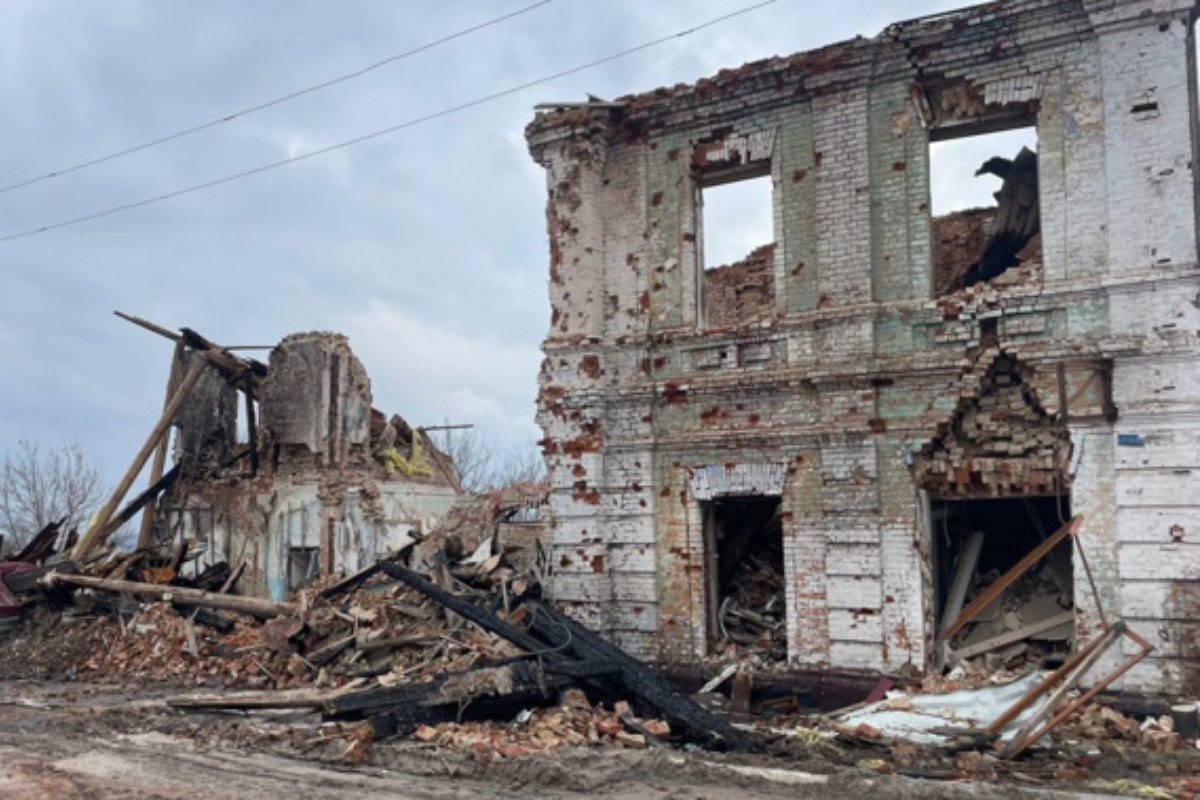- The artillery fire becomes more intense at night, so Liuba and her husband hold hands.
- Ukrainian authorities ordered the mandatory evacuation.
- Authorities claim, they manage between eight and forty voluntary evacuations.
The artillery fire becomes more intense at night, so Liuba and her husband hold hands It keeps them safe, she says, sadly nodding her head. She’s standing in the ruins of her garden, which was destroyed a month ago during a particularly bad night.

The shelling destroyed their neighbor’s house, knocking Liuba and her husband to the kitchen floor. Serhei, she claims, landed with the fridge on top of him and was thankfully more shaken than physically hurt. They are still refusing to leave.
“This is our home,” Liuba told. “Not the Russians’. Besides it’s getting warmer and with the rainwater we collect from buckets, we will survive.”
Liuba and Serhei, who gave only their first names for security reasons, are among the last 2,500 residents of Kupiansk, a city in Ukraine’s northeastern Kharkiv region where the front line has never strayed too far and where Ukrainian authorities fear it will return.
According to Kupiansk police chief Konstiantyn Tarasov, the din of artillery – both the dull thud of outgoing and the sharper whistle of incoming fire – has been getting unnervingly closer since mid-February. Russian positions are now less than 5 miles from a city they occupied at the start of the invasion before losing it in September to Ukraine‘s fall counteroffensive.
Due to “constant” Russian shelling, Ukrainian authorities ordered the mandatory evacuation of Kupiansk’s most vulnerable residents last week.

“We put up signs everywhere about the free evacuation with phone numbers to call,” said Dmytro Kovalov, one of the volunteers assisting with the evacuations.
“As shelling has intensified, more people have been registering. But then the internet was cut for two days so they couldn’t get in touch,” Kovalov told. “That’s why we started just blindly visiting addresses, knocking on doors. But some people refuse to go. They don’t want to leave their houses behind, and they hope that the Russians will be pushed back.”
Authorities claim that on most days, they manage between eight and forty voluntary evacuations.
According to a spokesman for Kupiansk police, there were still 350 children and 363 people with disabilities inside the city as of last week. Aside from the repeated shelling, the city is also difficult to access due to the damage done to its infrastructure by more than a year of war, including many of the roads and bridges leading in and out.
The city’s main market has also been reduced to rubble, forcing the city’s remaining residents to buy and sell whatever they can on cardboard boxes lining a dirt track. If the sound of shelling becomes too close, everything laid out can be easily packed up.
Lida, who stacks yellowed smoked fish among the produce on the table, claims to be an expert on the sound of incoming and outgoing artillery. Last year, she endured six months of Russian occupation. She also told that she will not be relocated from Kupiansk this time.
“We are not rats!” said Lida, who also gave only her first name for security reasons. “Besides, if we go, who will take over?”
Tarasov, the police chief, showed what a Russian Grad missile did to a makeshift medicine dispensary just a few days earlier, about 100 yards from where she sits. But there isn’t much to see beyond the debris and missile remnants. This is what the Russians do as they move closer to the city centre, targeting the few civilians who remain in order to survive, according to Tarasov.
Lida, on the other hand, is unmoved.
“What’s the difference?” she asked. “They are shelling Kharkiv as well. Is there any certainty I will stay alive there? No. So, we will stay here and hide where we can, behind the houses, or somewhere.”
The relentless attacks have left scars on most buildings, and many have been demolished. There aren’t many places to hide for the last few thousand civilians of Kupiansk.
[embedpost slug=”/military-action-only-way-to-achieve-goals-in-ukraine-says-peskov/”]





















